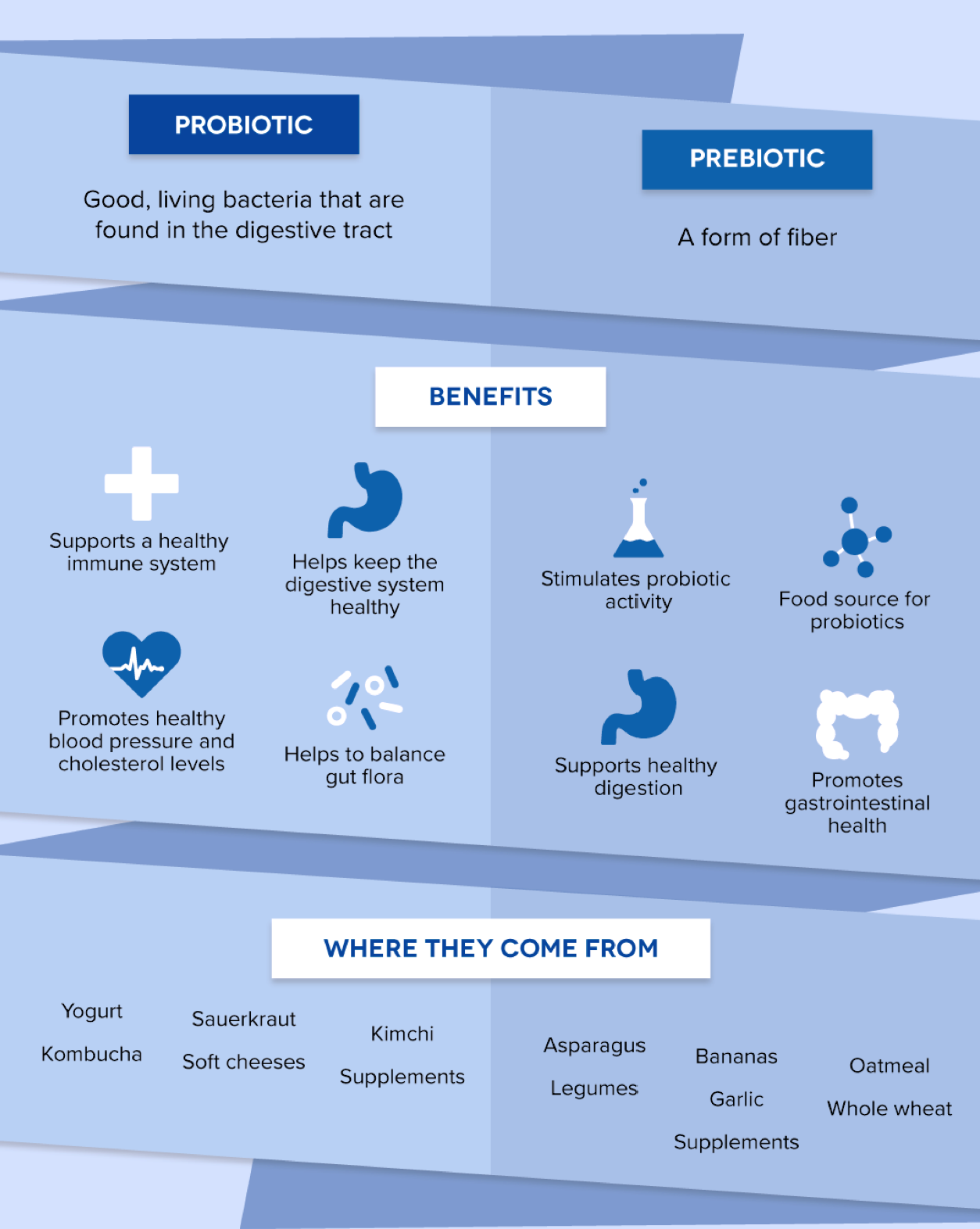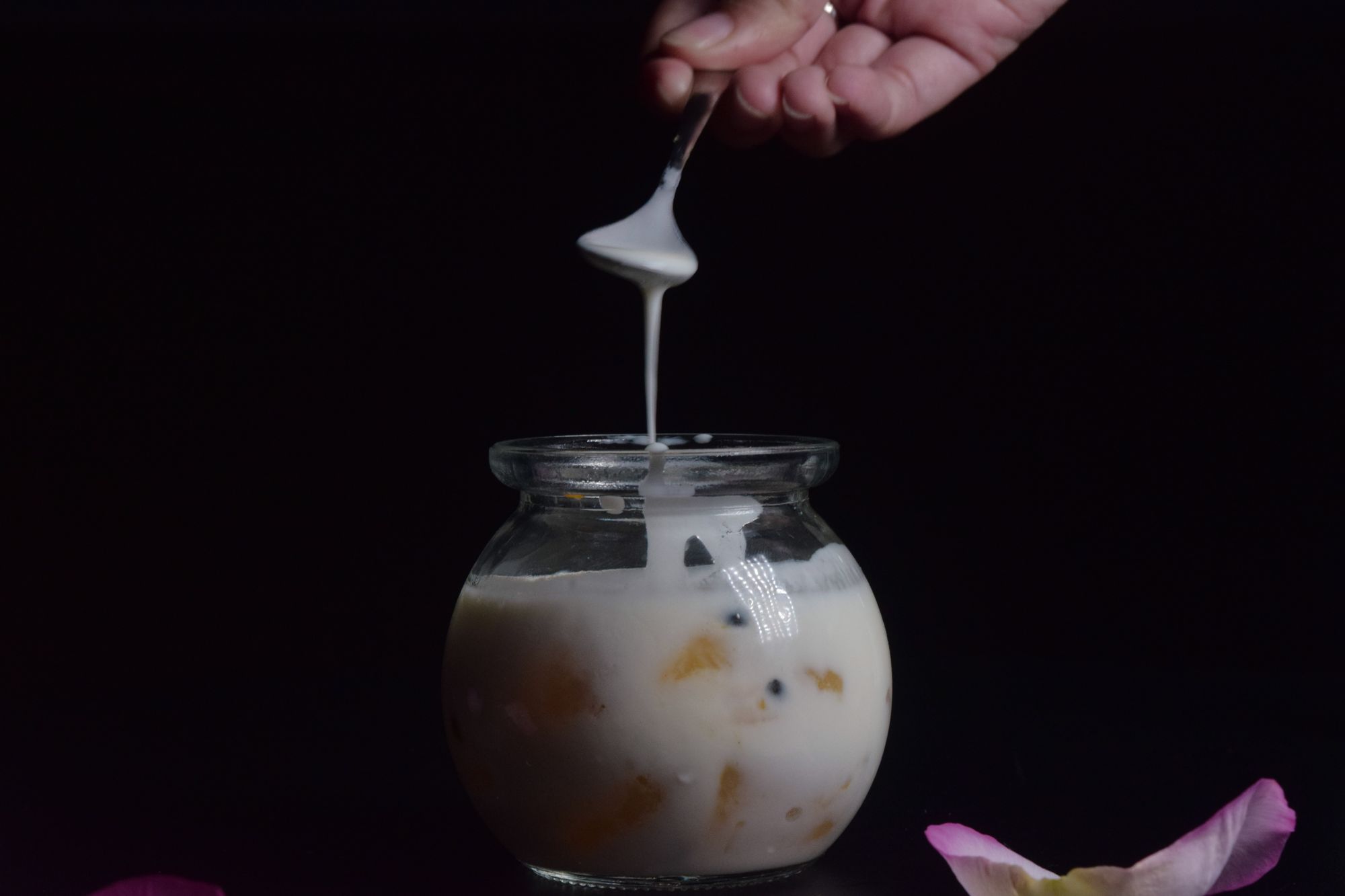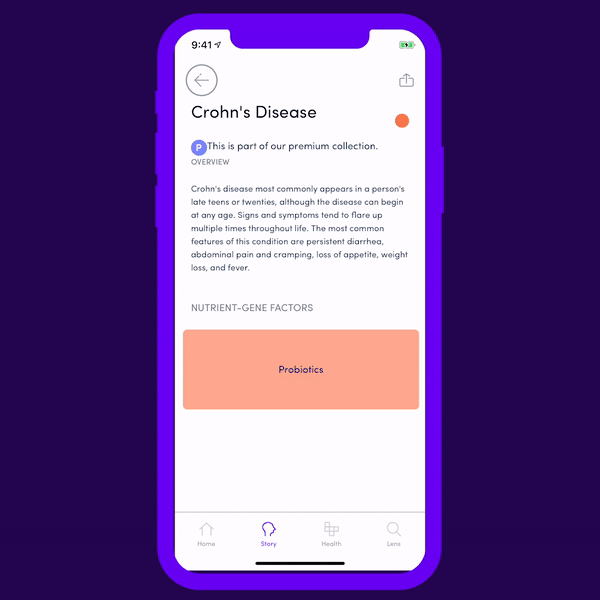The gastrointestinal tract is home to billions of microscopic organisms. These microorganisms play an important role in the well-being of the digestive tract, and may even be useful for conditions affecting other parts of the body. Unfortunately, there are some factors that can damage or kill the good bacteria that make up the microbiome of the gut, which makes way for harmful organisms to start growing.
If you have been keeping up with health research related to keeping the gut healthy, then you might have heard how probiotics and prebiotics are beneficial. While the two terms might sound very similar, there is a big difference between the two.

Probiotics: What Are They And Why Are They Important?
Let’s start with an overview of probiotics. These are the actual bacteria that thrive within the gastrointestinal tract. Probiotics are found in a number of food products that we consume, such as yogurt, fermented sausages, and vegetables that have undergone a fermentation process.
There are different types of bacteria that are considered to be healthy and good for human health. In the majority of cases, these bacterium species are divided into two primary groups, including:
- Lactobacillus
- Bifidobacterium
These "healthy bacteria" have been associated with a number of potential health benefits. Supplements and foods usually contain specific species of the main groups, which then starts to grow in the gut. A good diversity of probiotic bacteria are needed to ensure a person is able to benefit from good bacteria in the gastrointestinal tract and to reduce the risk of "bad" bacteria taking over and starting to grow.
Some of the potential health benefits associated with probiotics include, but are not limited to:
- Could assist with the digestion of lactose in people who are lactose intolerant
- Helps to improve the microbial balance in the intestines
- May have antihypercholesterolemic effects - controls an increase of cholesterol
- Could yield antihypertensive effects
- Might be able to assist in the alleviation of certain postmenopausal disorders
- Could be beneficial for patients with certain oral and skin-related diseases
Additionally, probiotics have also been found to be useful in treating diarrhea.
Prebiotics: What You Should Know
Prebiotics is a term that refers to specific types of fibers. These are not actual live microorganisms that will start to thrive in the gastrointestinal tract. Instead, prebiotics is rather fibers that the probiotics will "eat" in order to continue surviving and to effectively multiple and diversity.
The consumption of prebiotics is essential to ensure healthy bacteria that are in the gut can continue to perform their function. Several studies have shown that prebiotics helps to keep the balance of healthy bacteria in the gut, while also potentially reducing the risk of certain diseases.
One scientific study provides evidence that prebiotics is able to assist in diversifying the bacterium species present in the gut. This can lead to an increase in certain bacterium from the Ruminococcaceae and Lachnospiraceae species. These species are known to produce a compound known as butyrate in the gastrointestinal tract.
Do you need more of probiotics or prebiotics?
The gut-brain axis is still a mystery to researchers and we are only now uncovering some of its secrets, especially how the gut communicates with the brain and how it results in certain chronic and auto immune diseases. So it is always great if you consume probiotics as it maintains a healthy gut.
Studies have also shown that the consumption of prebiotics and the effect of these fibers on intestinal microbes may yield specific advantages that could improve symptoms associated with certain inflammatory conditions - including Crohn’s disease, inflammatory bowel disease, chronic pouchitis, & ulcerative colitis.
The risk of Crohn’s disease specifically can be driven by your genetics. It’s disease that appears in your late teens or twenties and symptoms tend to flare up multiple times during your life. With certain genetic types your risks of developing Crohn’s can increase 2-3 fold and in these cases it helps to increase your probiotics and prebiotics intake to maintain gut health. This appraoch can help restore the gut flora depleted due to stress, poor diet or other diseases.
Probiotics & prebiotics complement each other
Both probiotics and prebiotics complement each other – and needs to be included in your diet to ensure there is a diverse range of healthy bacteria residing in your gastrointestinal system. Understanding the difference between the two, however, is important. While probiotics refer to the actual bacteria that helps to improve intestinal health, prebiotics is rather the fiber that is needed for the probiotics to ferment and remain alive in the gut.





